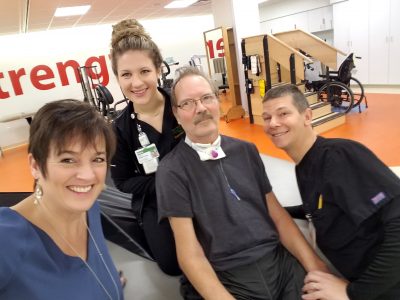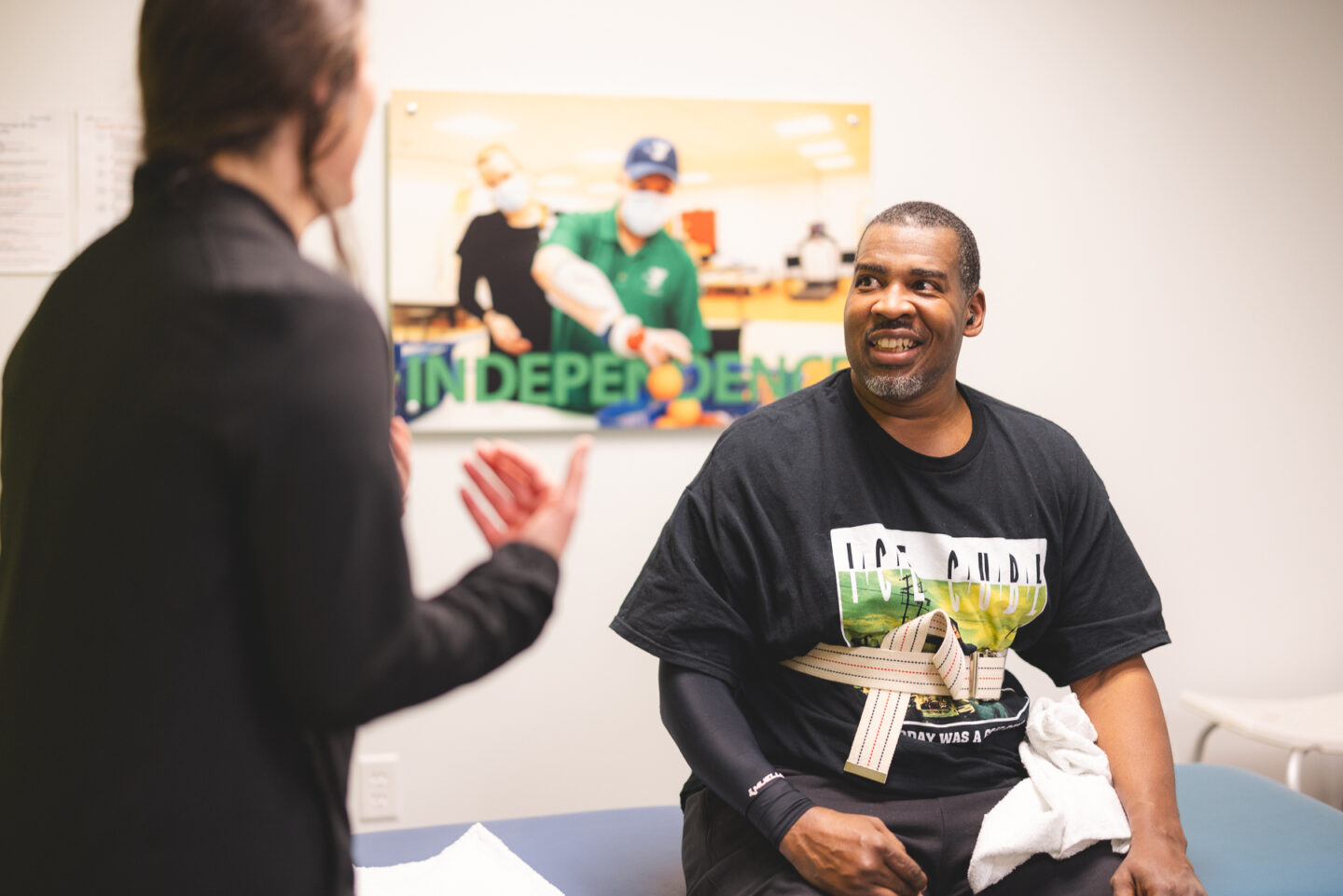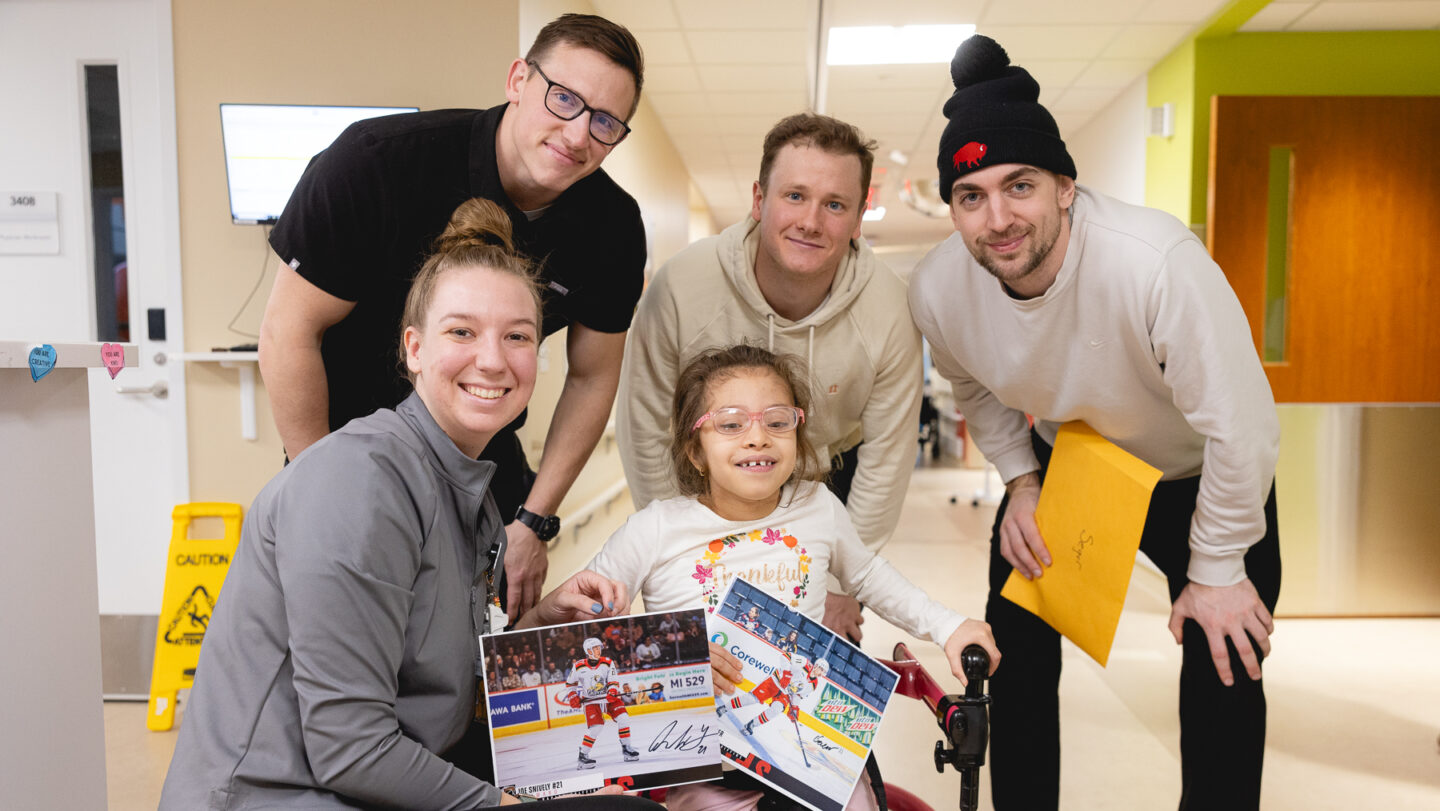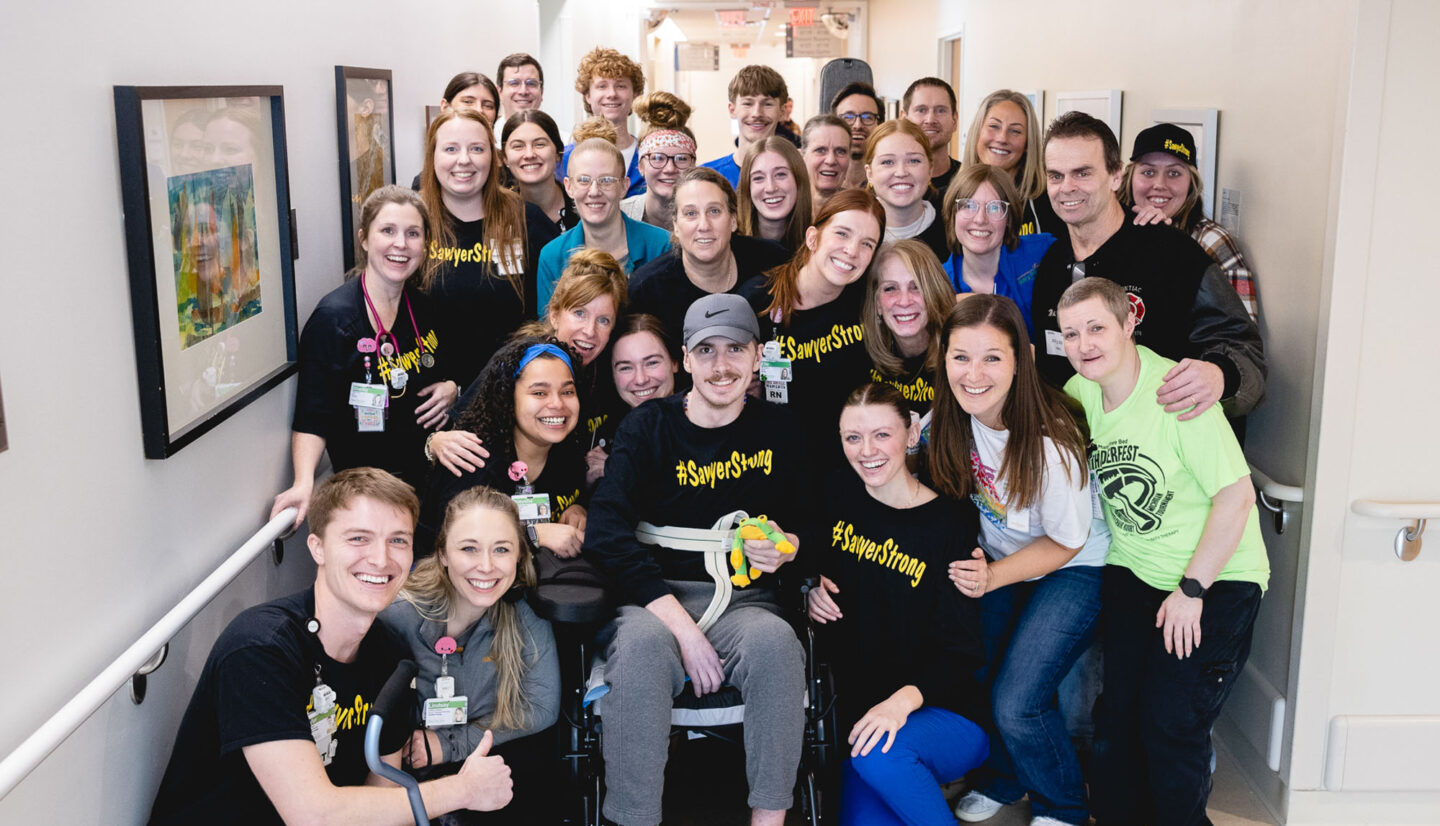Posted on July 12, 2018
Recovery from rare West Nile virus a life-changing journey for Al Walczak: ‘I just want to live’
For information about West Nile virus activity in Michigan and how to protect yourself, visit the Michigan Department of Health & Human Services website here.
Al Walczak always looks forward to summer, to warm days when he can putz around his backyard garden, walk along Millennium Park’s winding trails and settle in on his front porch with his wife and dad to enjoy a beer while listening to the Detroit Tigers game on the radio.
But on one of those warm summer days in Grand Rapids last year, Al was bitten by a mosquito infected with the West Nile virus.
While most people don’t get sick, about one in five develop a fever, headache, nausea or muscle aches. According to the Centers for Disease Control and Prevention, about one in 150 infected people develop life-threatening complications. That’s what happened to Al.
The typically vibrant 67-year-old woke up one August morning feeling light-headed and achy. He spent the next few days resting and drinking fluids to alleviate the flu-like symptoms, but couldn’t seem to beat it.
“Then he spiked a fever and was growing weaker and weaker,” said Al’s wife, Joy. “We went to the ER one night – they gave him fluids and his vitals improved, so we went home.”
But he didn’t feel better for long. On the morning of Sept. 2, Al woke up so weak he couldn’t get out of bed. Terrified, Joy called for help, and an ambulance took him to the emergency room at Mercy Health Saint Mary’s Hospital.
“He was admitted to a regular floor for supportive care until he got well enough to go home,” Joy said. “That was a Saturday. I planned to return to work the next Tuesday, and when I stopped on my way to see him, his blood pressure was through the roof and he couldn’t swallow.”
Al was transferred to ICU and intubated to help him breathe.
“His body began to shut down,” Joy said. “He couldn’t move, he couldn’t breathe on his own.”
Tests proved inconclusive, so blood samples were sent to the CDC, which confirmed Al was infected with West Nile. He was among the few who developed neuro-invasive disease, including encephalitis and meningitis.
“There’s no treatment for West Nile, just supportive care,” Joy said. “All we could do was wait and then deal with the aftermath of having been ill for so long. Thankfully, his mind wasn’t affected – he’s been able to communicate and understand.”
It’s been difficult for Joy to see her normally healthy husband plagued by the virus. Al is a retired professor who oversaw international programs at both Grand Valley State University and Davenport University. An “incredibly independent” man with an enviable sense of humor, Al loves to travel, play the guitar and bike.
“He’s been a healthy guy his whole life,” Joy said. “He’s a 40-plus-year member of the YMCA and takes care of himself. Fortunately, he went into this with good strong lungs and a healthy body.
“He’s traveled outside this country many times, but this happened in our own backyard.”
Al spent two weeks in ICU before being transferred to Select Specialty Hospital at Spectrum Health Blodgett Hospital to continue his recovery. Two months later, he was well enough to come to Mary Free Bed to begin inpatient rehabilitation.
“I was on a ventilator for a long time, so when I was well enough to wean from that, I knew I was getting better,” Al said. “Then one by one, people would come into my room and say ‘Congratulations, you’re going to Mary Free Bed!’ and I thought, ‘I’m doing OK.’”
He transferred to Mary Free Bed in November with significant respiratory issues and able only to make small movements. But with intensive physical, occupational, recreational and respiratory therapy over the next several weeks, Al’s condition improved.
“My ignorance about how the body operates was quite profound,” Al said. “I learned a lot about rehabilitation. I learned how to breathe again – to breathe deeply and use my diaphragm. I’ve had to learn how to do everything all over again.
“I also learned how incredible Mary Free Bed is. I feel so confident that everyone here is doing what they want to do, what they were meant to do. They take it very seriously. It’s not just a job – they really care, and that’s very comforting.”
Al graduated from inpatient care in late January and continued to make significant gains through the Mary Free Bed at Home program. He began participating in outpatient therapy in late May.
His Mary Free Bed team is focused on helping Al improve endurance, strength, coordination and flexibility using neuromuscular stimulation and range of motion.
“We’ve been working to increase his independence with self-care tasks such as eating and grooming with a mobile arm support and facilitating his return to other activities of daily living, such as keyboarding, writing and using a phone,” said occupational therapist Amy Haroff. “He’s basically learning to function within his current limitations.”
Al continues to need around-the-clock care and uses a power wheelchair for mobility.
“We don’t know how long that will be the case,” Joy said. “He’s getting more movement back – he’s gone from being able to hold his head upright to regaining the ability to feed himself, adjust his own glasses, scratch his nose if he needs to, use the remote, text me … those little life things. We’re celebrating every baby step.”
While Al’s long-term prognosis is unknown and their life-changing journey has been an emotional one, he and Joy remain optimistic.
“Therapy is vital to going forward in my rehabilitation, and I know it’s going to take a long, long time,” Al said. “I don’t expect to be 100 percent again, but I’ll do what I can. I’d really like to walk again.”
The Walczaks are “incredibly grateful” to the medical team at Select Specialty Hospital and to Team Al, a large group of family and friends who have come forward to care for them both. With their continued love and support, and that of his Mary Free Bed family, Al said he’s “feeling hopeful and thankful.”
“When I came to Mary Free Bed, the people here had such a sense of hope about them,” he said. “Nobody has promised anything, but they’re so encouraging about persisting and not giving up. Attitude can make a big difference. It’s not like I don’t have bad moments … but I’ve maintained a good attitude and that’s in part from their encouragement.
“I’ve learned a lot about myself. But the bottom line of this whole experience is that I’ve realized how lucky I am. There are so many good people in my life, and they inspire me to want to get better. I just want to live.”






